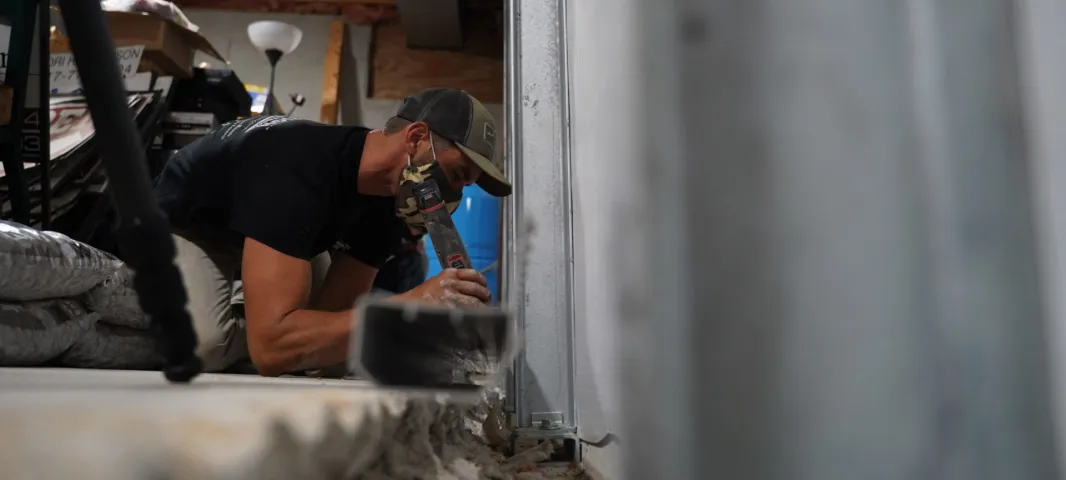Basement waterproofing in Indianapolis can be rewarding if you approach it with the right strategy. The city’s unique geography—from limestone bedrock and rich clay loam to a range of foundation types—provides various considerations for waterproofing. Understanding the soil properties and discovering proven waterproofing techniques can help homeowners protect their basements and provide long-term security.
Comprehending Indianapolis Soil: A Foundation Of Opportunity
Indianapolis is known as a city with a diverse range of geological features. Homes can be built using limestone for its strength and durability or clay loam due to its fertility and density. Although the soil types may differ, each one provides a good foundation for construction. It also allows you to use customized waterproofing methods to meet your unique requirements.
Due to its solid foundation, limestone can be used for exterior waterproofing. The clay loam, however, is more suited to properties that combine drainage and decorative outdoor spaces. Learn about expert basement waterproofing solutions in Indianapolis, IN, for your soil type and foundation.
Exterior Waterproofing Membranes: A Proven Protection Solution
Applying exterior waterproofing systems is a great way to keep your basement dry. These systems act as a barrier between a foundation wall and the soil.
Benefits:
- Effective Protection: Exterior linings are designed to prevent water from reaching the surface of the walls, preventing basements from flooding and foundations from settling.
- Customized Fit: This membrane can be fitted to smooth surfaces like concrete and textured stones like limestone.
- Compatibility with Landscaping: When investing in beautifully designed yards, exterior waterproofing may be integrated seamlessly into the design plans.
When professionally installed, exterior membranes combine durability and longevity and add value to any Indianapolis property.
Interior Drainage Canals: An Integrated, Smart System
Interior drainage solutions can also manage basement moisture. French drains, baseboard channels, and sump pump systems collect water and efficiently direct it away from the interior.
Benefits:
- Quick Setup: Most homeowners prefer these systems because they can be set up without disrupting their exterior landscaping.
- Efficient Management of Water: Interior drainage works well in homes built on clay loams, which retain moisture. These homes are designed to efficiently manage seasonal groundwater.
- Seamless Integration: With discreet finishing touches and interior systems, basement upgrades and remodels are easily incorporated.
These systems have become popular in new and older homes because of their effectiveness and flexibility.
Waterproofing According To The Soil Type
One of the main benefits of waterproofing your basement in Indianapolis is that you may customize your solution according to the kind of soil.
- Limestone Foundations: Membranes are a perfect solution for these foundations, as they offer a flat, clean surface. The resultant watertight membrane enhances the home’s durability.
- For clay loam soils: Their design encourages active water re-direction while maintaining soil integrity. Clay-rich soils retain moisture and can support healthy gardens and yards.
It is important to match the system with your home’s soil type. This will ensure that you get both performance and peace.
Hybrid System: Combining Strengths To Complete Coverage
Indianapolis homeowners choose to combine exterior and interior systems for protection. This hybrid method combines exterior membranes to stop surface moisture with interior drainage channels for increased water control.
By combining the two methods, homeowners can benefit from proactive prevention and efficient management within their property without compromising its appearance or function.
Why Local Expertise Is Important
Indianapolis contractors are well-versed in the local soils, climate patterns, and construction styles. They can create waterproofing systems that complement the individual characteristics of each house.
Working with local experts ensures that materials are chosen for their regional durability, systems are installed with precision, and homeowners receive long-term maintenance and care guidance.
Conclusion:
Basement waterproofing in Indianapolis, whether on limestone bedrock soil or clay loam, is not an issue. Instead, it offers a great opportunity to increase the longevity and comfort of your home. A variety of reliable solutions are available. From protective exterior membranes to efficient interior drain channels, homeowners can find the perfect solution that suits their lifestyle and property.
If you’re planning the next step in your project, make sure you research expert solutions to waterproof your basement in Indianapolis. The best approach will bring lasting results to your home and increase its value. A secure and dry basement is not only possible but also a wise investment in the future of your property.
